At last year’s Chattajack 31, one of the premier long-distance paddling races on the North American calendar, the top three paddleboarders blasted across the finish line minutes ahead of the field of hundreds. Two were predicted—pros and perennial champions Larry Cain and Bart de Zwart—but in third place was a complete unknown, a middle-aged MD from Hilton Head, South Carolina, named John Batson. And if that was not surprising enough, another newcomer had a hand in Batson’s third-place finish: the Paddle Monster website and app.
Turning into a Paddle Monster
Batson was a newcomer to racing and to Chattajack, yet found himself drafting the two elite racers right off the start and miraculously hanging on for all 31 miles. “It was one the best days of my life,” he recalls. He credits his success to online coaching from Cain through Paddle Monster, a new service quietly transforming the SUP racing scene by turning everyday paddlers like Batson into speed demons.
Part online community, part virtual paddling classroom, and part personal coaching service, Paddle Monster—you may have seen it spelled Pdl Mnstr on stickers or hats—is a phenomenon changing the way a significant segment of the competitive SUP community trains and paddles. If you’ve noticed the average speed at your local race series ratcheting up, or perhaps an increase in the collective breadth of the latissimus dorsi or a general glow of camaraderie and pride, then I point to Paddle Monster. This fast-growing app has taken the Internet long-tail phenomenon—using the global reach of the web to aggregate people with arcane interests into a community of critical mass—and applied it to the small world of SUP racing.
Building an online classroom
Paddle Monster was founded in May 2016, by Cain, an Olympic champion canoeist and former Team Canada paddling coach, and North Carolina SUP entrepreneur, John Beausang. The pair wanted to find a way to deliver Cain’s coaching expertise to a large number of SUP paddlers without the limitations of traditional online coaching.
“The inspiration came from taking online courses and seeing how much I enjoyed working with nationally recognized thought leaders,” says Beausang. “And we witnessed how difficult it was for coaches to manage and schedule meetings and Skype calls with clients. We thought there must be a better way to be able to serve more people in a group setting, but still maintain that personal contact.
Cain was inspired by the competitive canoe and kayak club he grew up in, where a coach posts one program for dozens of athletes, and then makes individual modifications. Sharing the program helps to keep costs down and limits the workload for the coach.
Cain and Beausang decided to set up an online forum, where every member who pays a $50 monthly fee gets access to a training plan and unlimited communication with the coach through the forum, which operates like a virtual classroom, where everyone can see and learn from everyone else’s questions and answers.
Paddle Monster becomes a community
Nearing its two-year anniversary, Paddle Monster has become a feature-rich app filled with instructional videos, blog posts, articles, discussions and a Facebook-style social media feed where members proudly share race results, training data, paddling selfies and sunrise photos from early morning workouts.
“We live five miles from each other, but we met through the Paddle Monster forum. Now we’re friends and training partners.”
The community grown from the social media features has been a big bonus, say Cain and Beausang, with Paddle Monsters everywhere getting together to train or meet up at races. The site helped Cleveland, Ohio, SUP paddlers Steven Barry and Tony Galang discover they were training around the corner from each other.
“We live five miles from each other, but we met through the Paddle Monster forum. Now we’re friends and training partners. We usually do our three hardest paddles a week together,” says Barry.
Others, like John Batson, use the app to overcome the isolation of training alone. “There are very few individuals in the area who paddle for fitness or racing,” he says. “In addition, my work schedule often limits my paddleboarding to solo sessions at odd hours. Paddle Monster allows me to be an individual paddler, but train in a group with similar goals,” says Batson.
The training really works
Paddle Monster continues to grow, last year expanding to outrigger and surf ski coaching and adding four new coaches: Molokai OC-1 and SUP champion Travis Grant, six-time world surfski champion Teneale Hatton, top 10 world-ranked SUP racer Seychelle, and the Canadian Olympic team paddle strength coach Chris Chapman, who provides a paddling-specific strength program to complement the other coaches’ training plans.
Beausang is understandably proud: “Where else and in what sport can the average person be coached by an Olympic gold medalist, a 24-hour paddling world record holder, or a six-time world champion?” he asks.
Paddle Monster now has over 1,400 users at various subscription levels with up to 500 actively training.
“We have Paddle Monsters throughout Europe, Asia and North and Central America, Hawaii, New Zealand and Australia,” says Beausang.
Orienting one’s life around elite-level paddle training is a huge commitment. “The one issue we have is for some people it’s too much,” admits Cain. “There are people who join and after a month or two they cancel and they say it’s not for them.” But he continues to be inspired by how many people embrace the challenge and get results—not necessarily at the level of Batson, but in every case exceeding personal limits as proof of the Paddle Monster motto #trainingworks.
Paddle Monsters excel in the race
Mona Barbera, 67, is a paddler from Newport, Rhode Island. After training from an instruction book for two years and continually getting sidelined by injury, she joined Paddle Monster and saw her injuries disappear and her race results improve within 14 months. Her successes include “smoking a couple of 20-year-olds” at a recent event and coming in second overall at another race where she “won a jar of local peanut butter and a bag of really good bread.”
More to the point, like many Paddle Monsters, Barbera is a regular person enjoying the satisfactions of a second life as a competitive athlete. “I am a psychologist, couples therapist and author. I have been known to show up in a session discreetly wearing neoprene under professional attire so I can hop on my board right after,” she says.
This article was first published in Issue 53 of Paddling Magazine. Subscribe to Paddling Magazine’s print and digital editions, or browse the archives.
Tim Shuff is a former editor of Adventure Kayak magazine. He is also enjoying a second life as a competitive athlete, and raced in last year’s Chattajack 31.



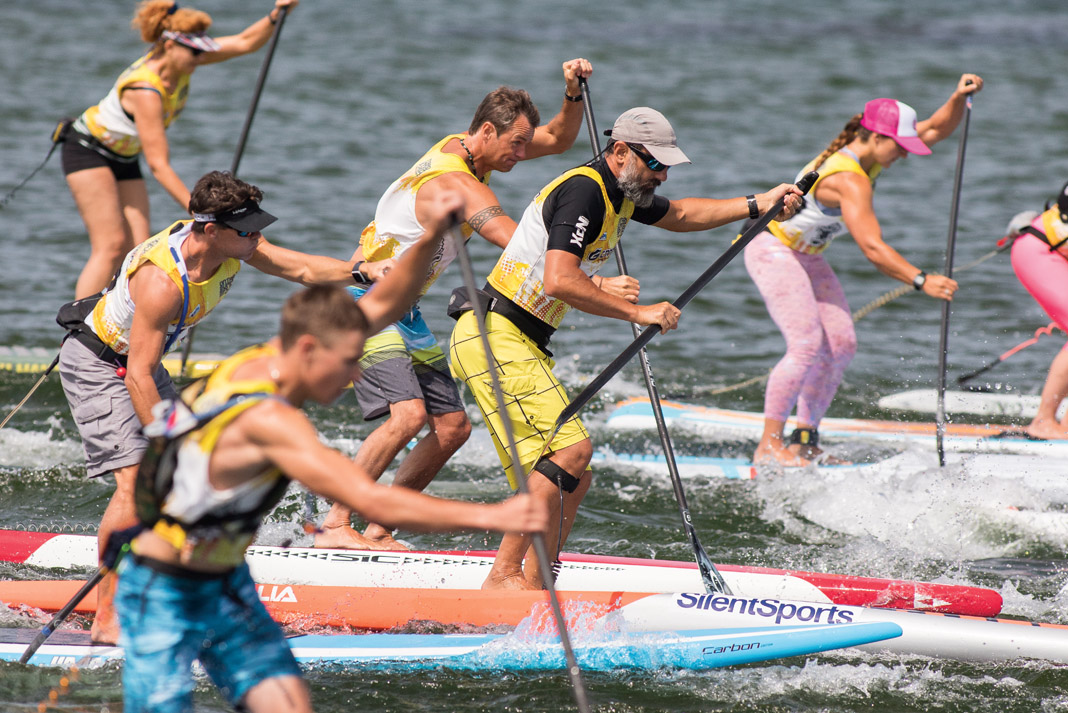
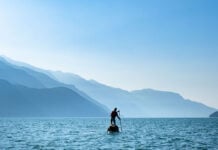

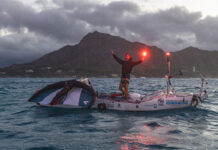
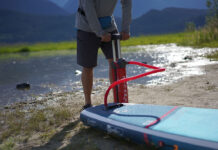
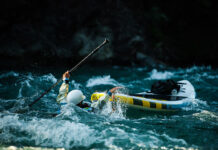

Paddle Monsters need ours air SUP air pump.